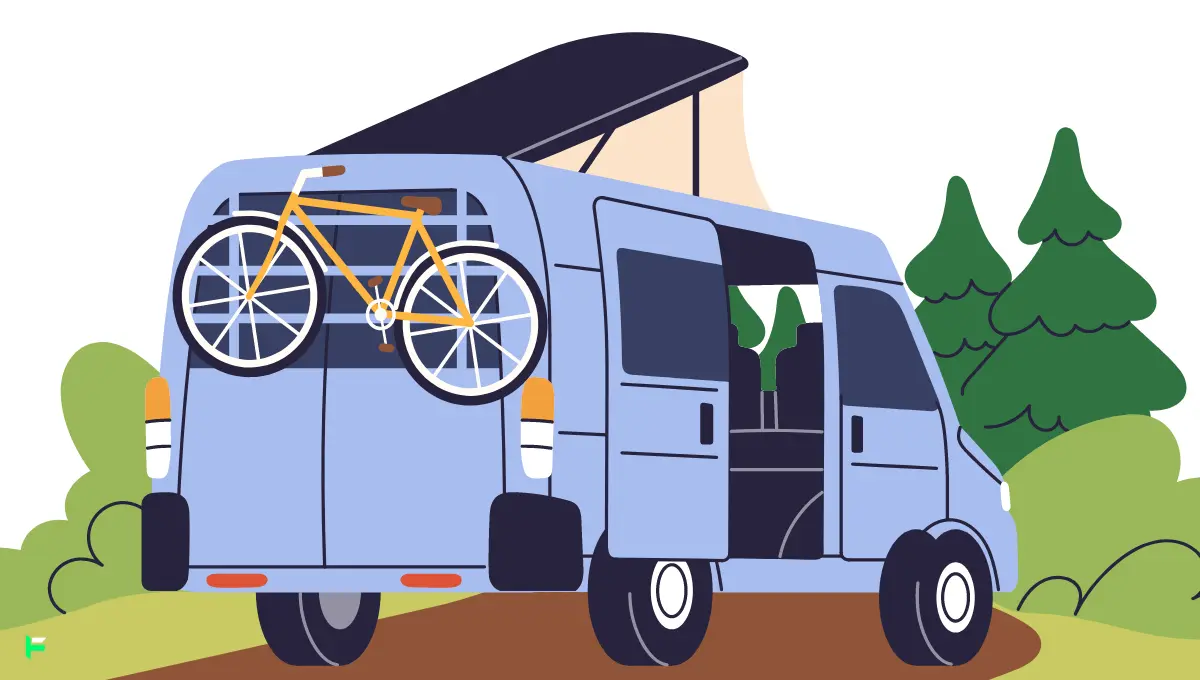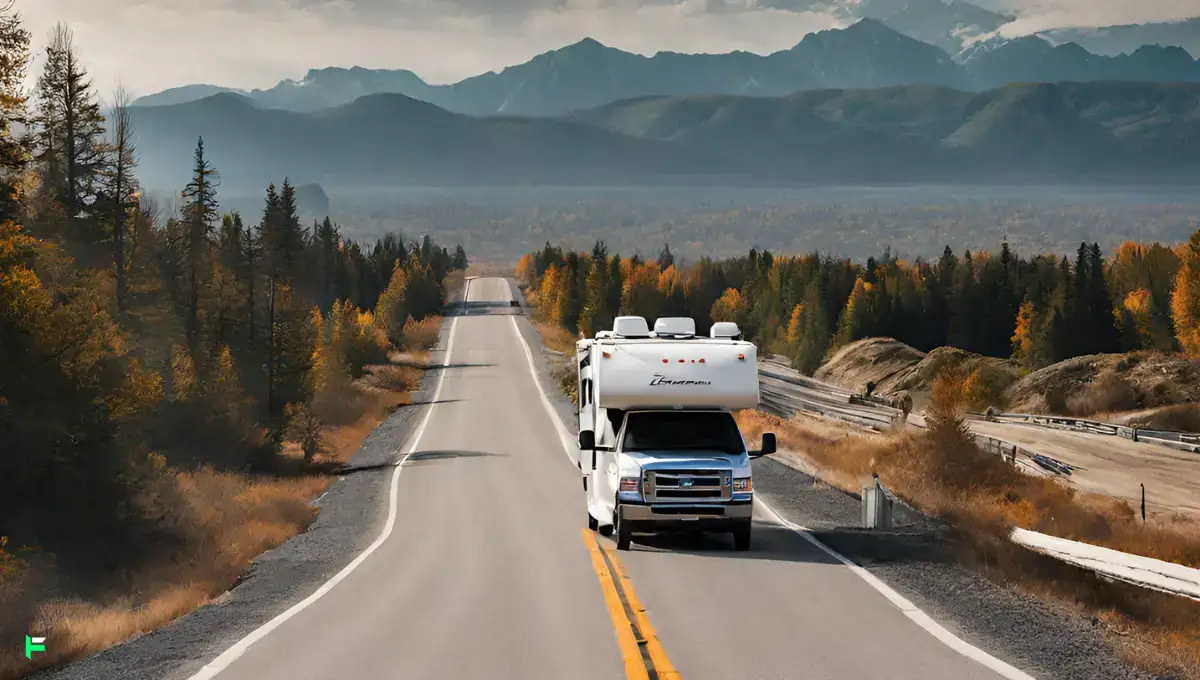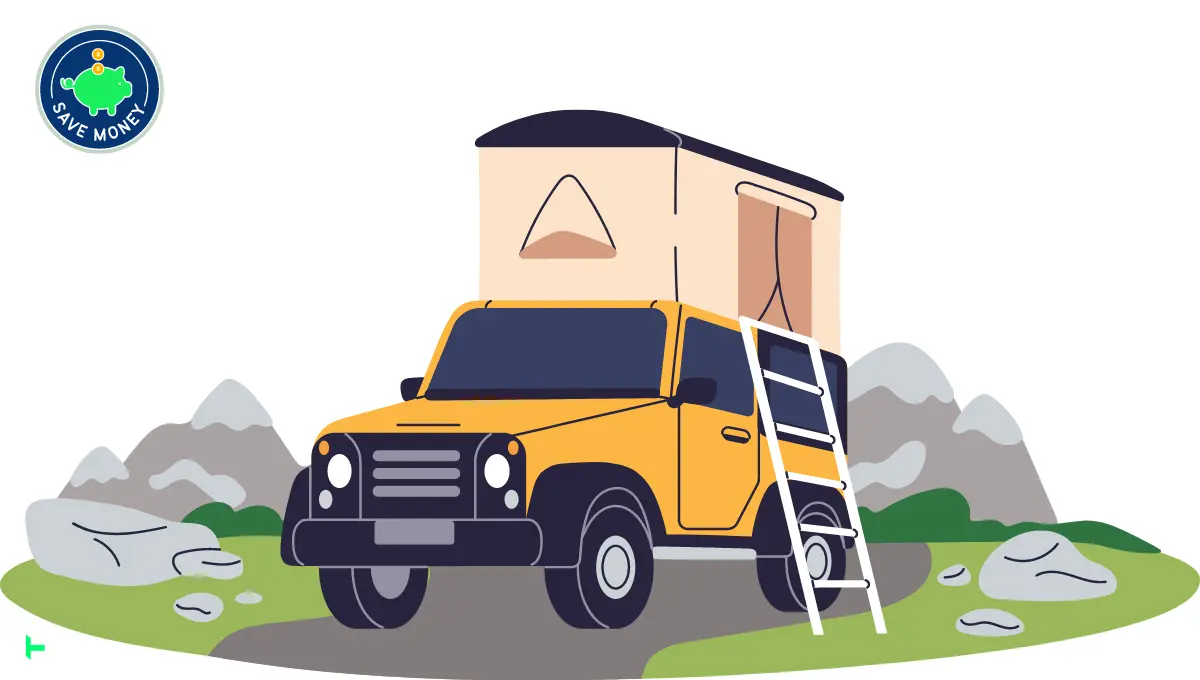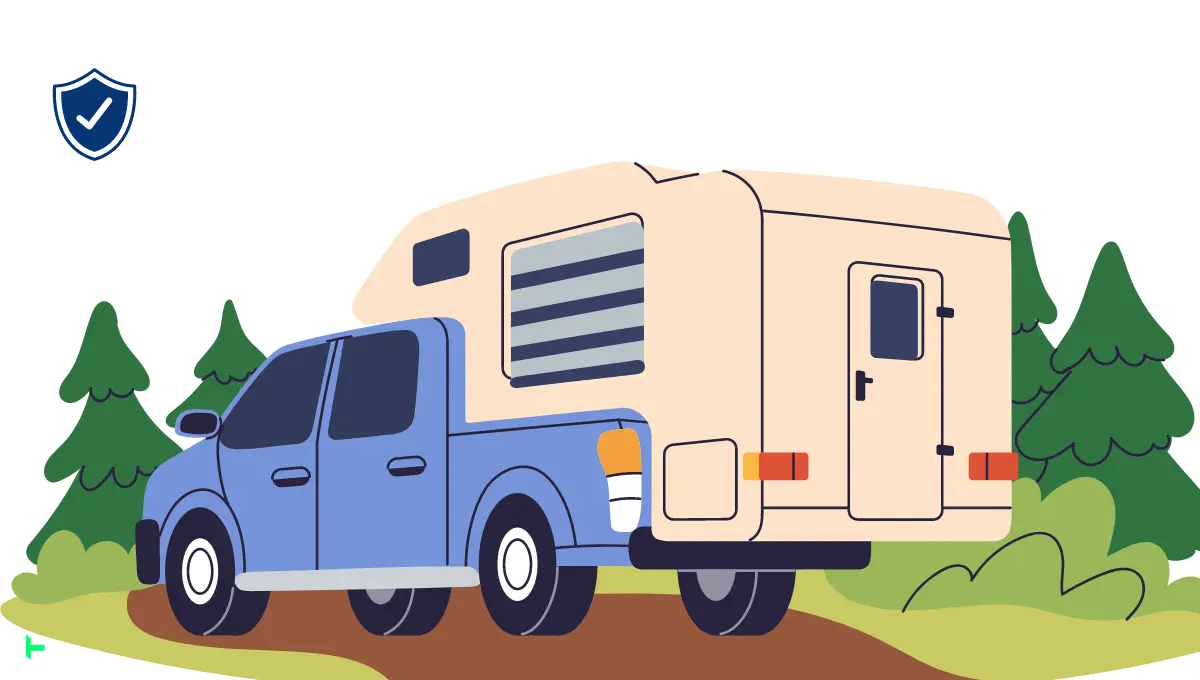What factors influence RV insurance premiums? Several factors influence RV insurance premiums, including the RV’s age, value, usage, driving record, location, and coverage options.
In the realm of RV ownership, safeguarding your investment with the right insurance policy is important. Understanding the world of RV insurance coverage, however, can be difficult due to the number of options.
Do not be afraid! With the help of this guide, you can compare and understand the coverage options for RV insurance policies and make an informed decision that best suits your needs.
- 💡 Understanding RV Insurance Coverage Options
- ✅ Exploring Key Considerations When Comparing RV Insurance Policies Coverage Options
- 🙋🏻♀️ FAQs About Comparing RV Insurance Policies Coverage Options
- Q. Are there specialized insurance policies for full-time RV living?
- Q. Can I suspend my RV insurance coverage when it's not in use?
- Q. Does RV insurance cover towing and roadside assistance?
- Q. Are there discounts available for RV insurance?
- Q. Can I customize my RV insurance policy to fit my unique needs?
- 😇 Conclusion
- 🗨️ Tell Us In The Comment You advise for Comparing RV Insurance Policies Coverage Options

💡 Understanding RV Insurance Coverage Options
Navigating the maze of RV insurance coverage options requires a keen understanding of the various components that comprise a policy. Let’s delve into the intricacies of each coverage option:
1. Required Coverages
- Bodily Injury Liability: This covers medical bills and lost wages of others you injure in an accident where you’re at fault. Most states require this coverage.
- Property Damage Liability: This pays for repairs to someone else’s property (vehicles, structures) you damage in an accident you cause.
2. Optional Coverages
- Collision: Covers repairs to your RV if you collide with another vehicle or object, regardless of fault.
- Comprehensive: Pays to fix your RV for damages not caused by collision, such as theft, fire, weather events, vandalism, or animal encounters.
- Personal Effects Coverage: Reimburses you for the value of your belongings damaged or stolen from your RV.
3. Additional Coverages
- Medical Payments: Covers medical expenses for you and your passengers in case of an accident, regardless of fault.
- Uninsured/Underinsured Motorist Coverage: Protects you if the driver at fault has no insurance or does not have enough coverage to cover your damages.
- Towing and Labor Costs: Covers towing and roadside assistance if your RV breaks down.
- Total Loss Replacement: Replace your RV with a new one of comparable value if it’s deemed a total loss.
- Vacation Liability: Extends your liability coverage to incidents occurring while you’re using your RV for vacations.
- Emergency Expense: Reimburses you for expenses like hotel stays and transportation if your RV becomes unusable due to a covered event.
- Full-Timer’s Liability: Provides increased liability coverage for RVs used as full-time residences.
- Pet Coverage: This covers medical expenses for your pet if they’re injured while traveling in your RV (offered by some insurers).
- Tow Bar Coverage: Provides specific coverage for damage to your tow bar or towed vehicle.
4. Comparing Policies
When comparing quotes, consider:
- Coverage amounts: Ensure each policy offers sufficient coverage limits for your needs.
- Deductibles: Choose a deductible you’re comfortable paying in case of a claim.
- Discounts: Look for discounts offered for things like safe driving records, bundling with other insurance policies, or being a member of specific groups.
- Reputation and customer service: Research the insurer’s reputation for claims handling and customer service.

✅ Exploring Key Considerations When Comparing RV Insurance Policies Coverage Options
The key to selecting the best RV insurance is to understand the many coverage options and customize them to meet your requirements. For your convenience, we’ve broken down some popular RV insurance choices for you to compare:
When embarking on the journey of comparing RV insurance policy coverage options, several factors warrant careful consideration:
1. Premium Costs vs. Coverage Limits
While cost is a crucial factor, prioritize coverage adequacy over mere affordability. Assess the balance between premium costs and coverage limits to ensure comprehensive protection without breaking the bank.
2. Deductibles
Evaluate the deductibles associated with each coverage option, considering your financial comfort level in the event of a claim. Opting for higher deductibles can lower premiums but may necessitate greater out-of-pocket expenses.
3. Exclusions and Limitations
Thoroughly review policy exclusions and limitations to ascertain potential gaps in coverage. Address any concerns with your insurer to explore options for mitigating risks through endorsements or supplementary coverage.
4. Discounts and Bundling Options
Inquire about available discounts and bundling options to maximize savings while optimizing coverage. Bundling your RV insurance with other policies such as auto or homeowners’ insurance can unlock substantial savings.
5. Customer Service and Claims Handling
Evaluate insurers based on their reputation for stellar customer service and efficient claims handling. Reading reviews and seeking recommendations can provide insights into the insurer’s reliability and responsiveness.
6. Coverage Flexibility and Customization
Look for insurers that offer flexibility in tailoring coverage to your unique needs. Customizable options enable you to fine-tune your policy to align with your RV lifestyle and preferences.
Note: Remember, the best RV insurance policy offers the right balance of coverage and affordability based on your circumstances. Don’t hesitate to consult with an insurance agent to discuss your needs and get personalized recommendations.
🙋🏻♀️ FAQs About Comparing RV Insurance Policies Coverage Options
A lot of questions come to our mind while comparing the insurance policies coverages, some of the commonly asked questions are answered below.
Q. Are there specialized insurance policies for full-time RV living?
A. Yes, many insurers offer specialized coverage options tailored to full-time RV living, encompassing liability, personal property, and additional living expenses.
Q. Can I suspend my RV insurance coverage when it’s not in use?
A. While some insurers offer seasonal or storage coverage options, suspending coverage entirely may leave you vulnerable to risks such as theft, vandalism, or natural disasters. It’s advisable to maintain comprehensive coverage year-round.
Q. Does RV insurance cover towing and roadside assistance?
A. Many RV insurance policies offer optional roadside assistance coverage, providing peace of mind with services such as towing, fuel delivery, and tire changes.
Q. Are there discounts available for RV insurance?
A. Yes, insurers often offer discounts for factors such as safe driving records, completion of RV safety courses, bundling policies, and installing safety features.
Q. Can I customize my RV insurance policy to fit my unique needs?
A. Absolutely! Many insurers offer customizable coverage options, allowing you to tailor your policy to your specific RV lifestyle, preferences, and budget.
😇 Conclusion
Navigating the landscape of RV insurance policy coverage options can seem overwhelming, but armed with knowledge and guidance, you can make a well-informed decision that safeguards your RV adventures. Remember to assess your coverage needs, compare options diligently, and prioritize comprehensive protection tailored to your lifestyle. Happy trails and safe travels!
🗨️ Tell Us In The Comment You advise for Comparing RV Insurance Policies Coverage Options
Also, don’t forget to book your personalized holiday package with Fiery Trippers. Let us make your vacation a romantic as well as a dreamy getaway.
Unleash the Savings: 🤑 Expert Tips for Cutting Costs on RV Insurance
🤔 How To Choose The Right RV Insurance Company? Your Ultimate Guide


